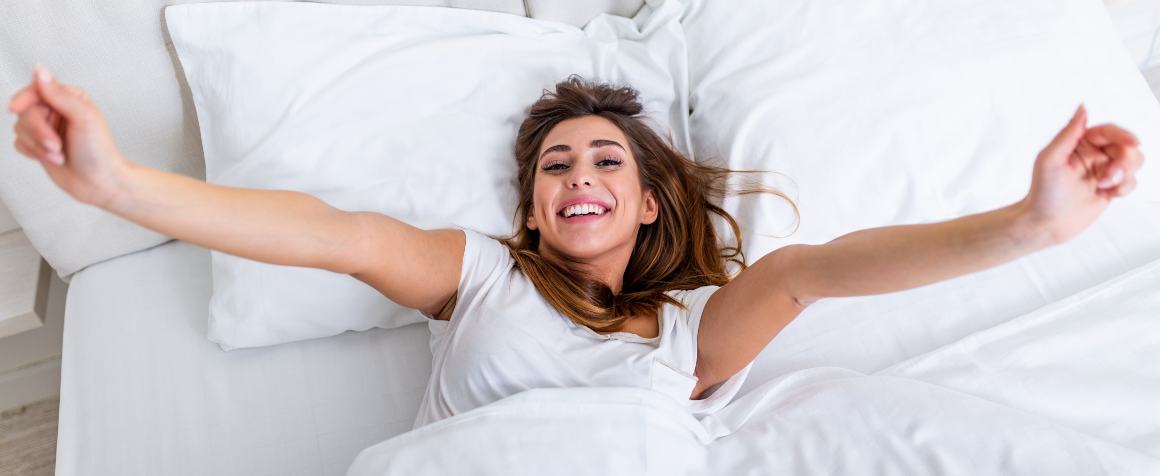Relaxation Before Bed
Published:
Getting adequate, high-quality sleep is essential for both physical and mental health. However, many people struggle to relax and fall asleep at night due to stress, anxiety, racing thoughts, and uncomfortable environments. Developing a relaxing pre-bedtime routine can help calm the body and mind before sleep. This comprehensive guide explores evidence-based relaxation techniques, sleep hygiene tips, and lifestyle changes for better sleep.
Contents:
- Why Relaxation is Key for Quality Sleep
- Optimizing Sleep Hygiene
- Lifestyle Choices that Support Relaxation and Sleep
- Developing an Ideal Pre-Sleep Relaxation Routine
- Summary: A Relaxed State is the Gateway to Quality Sleep
- Frequently Asked Questions About Relaxation Before Bed
- What are the benefits of relaxing before bedtime?
- When is the best time to start relaxing before bed?
- What relaxing activities are best before bed?
- How can I create a relaxing environment for sleep?
- What lifestyle habits promote relaxation and sleep?
- How can I quiet my thoughts and stop worrying before bed?
- What if relaxation techniques don't work for me?

Why Relaxation is Key for Quality Sleep
The body needs to shift into a relaxed state to fall asleep and get restorative sleep throughout the night. High stress levels, anxiety, excessive stimulation, and discomfort can inhibit relaxation and disrupt sleep. Research shows that integrating relaxing activities into the hours before bed can have powerful benefits for sleep quality.
How Relaxation Promotes Better Sleep
Relaxation before bed helps in several key ways:
- Lowers stress hormones like cortisol
- Decreases nervous system arousal
- Slows racing thoughts and quiets the mind
- Relieves muscle tension and pain
- Promotes feelings of calm and well-being
- Allows the body to shift into sleep mode
Consequently, relaxation makes it easier to fall asleep, stay asleep, and achieve deeper, more restorative sleep.
Relaxation Techniques for Pre-Bedtime
Many different relaxation techniques can be incorporated into a nightly pre-sleep routine. Experiment with several options to find those that work best for your needs. Ideal techniques for before bed are:
- Meditation and Breathing Exercises: Calms the mind and body by focusing awareness on the present moment. Try guided meditations, deep breathing, and techniques like 4-7-8 breathing.
- Progressive Muscle Relaxation: Reduces muscle tension by systematically tensing and releasing muscle groups.
- Yoga and Stretching: Releases muscle tension and quiets the mind through gentle poses and stretches. Try legs up the wall, child's pose, and cat/cow poses.
- Reading and Journaling: Distracts from stressors and redirects focus to positive subjects. Read uplifting books or write in a gratitude journal.
- Warm Baths: Induces relaxation through moist heat and promotes feelings of calm. Add Epsom salts to soothe sore muscles.
- Aromatherapy: Essential oils like lavender provide calming scents that can promote sleepiness. Use a diffuser, pillow mist, or topical application.
Optimizing Sleep Hygiene
In addition to active relaxation techniques, optimizing sleep hygiene can make it easier for the body to naturally relax and prepare for restful sleep. Sleep hygiene refers to behavioral and environmental conditions that impact sleep quality.
Setting the Stage for Relaxation and Rest
Improving sleep hygiene involves modifying factors that may disrupt relaxation and sleep. Tips to optimize the sleep environment include:
- Keep the bedroom quiet, cool and dark
- Invest in comfortable, high-quality bedding
- Limit exposure to screens before bedtime
- Avoid stimulating activities close to bedtime
- Reduce caffeine, alcohol and heavy meals before bed
Establishing a soothing pre-bedtime routine also signals to the body that it is time to relax and sleep. This may include activities like taking a bath, reading fiction, or doing light stretches.
The Importance of Consistency
Being consistent with healthy sleep hygiene habits allows the body to regulate sleep-wake cycles for better nightly relaxation. Going to bed and waking up at the same time, even on weekends, helps establish optimal sleep cycles.
Lifestyle Choices that Support Relaxation and Sleep
Certain lifestyle choices and daily habits can also make it easier or harder for the body to relax and sleep soundly. Making smart choices during the day lays the foundation for restorative sleep.
Reducing Stress Through the Day
High stress and anxiety during the day can make it very difficult to relax at night. Managing and reducing sources of stress can enhance relaxation come bedtime. Strategies include exercise, social connection, time in nature, deep breathing breaks, and saying no to unnecessary obligations. Consider stress-reducing habits like yoga, counseling, or keeping a gratitude journal.
Optimizing Exercise and Activity
Moderate exercise helps dissipate stress hormones and muscular tension that can interfere with relaxation. However, vigorous late-night workouts can be overstimulating. Finish intense exercise at least 2-3 hours before bed, doing gentle yoga or stretching right before bed instead.
Getting exposure to natural daylight during the morning and day helps regulate the circadian rhythm so the body produces melatonin at the appropriate time in the evening. Outdoor walks in the morning are ideal.
Dietary Considerations
Some foods and beverages can undermine relaxation, while others can enhance it:
- Avoid: Caffeine, alcohol, heavy meals before bed
- Enjoy: Magnesium-rich foods, herbal tea, tart cherry juice, cbd oil
Magnesium relaxes muscles, chamomile tea is soothing, cherries contain melatonin, and cbd oil reduces anxiety. A light pre-bedtime snack of crackers and peanut butter can also curb nighttime hunger.
Developing an Ideal Pre-Sleep Relaxation Routine
Optimizing relaxation in the one to two hours before bedtime is key. Here are steps for creating an evening routine to allow the best relaxation and sleep:
1. Wrap Up Work and Other Activities
Finish any stimulating tasks at least one hour before bedtime. This allows the nervous system to begin calming down. Avoid screen time and stressful conversations late at night.
2. Relaxing Activities
Engage in relaxing activities as part of a consistent pre-bed routine. This may include yoga, reading fiction, taking a bath, soft music, aromatherapy, or guided meditation.
3. Prepare the Bedroom
Optimize the sleep environment by lowering lights, keeping the room cool, using blackout curtains, putting on pajamas, and turning on a sound machine or fan for white noise.
4. Light Snack if Needed
Eat a small snack like herbal tea and crackers if hungry. This prevents nighttime awakenings from hunger pangs. Limit fluids right before bed to reduce bathroom trips.
5. Final Relaxation
Right before getting in bed, engage in a final relaxing activity like deep breathing, prayer, or journaling. Let go of any lingering thoughts about the day.
Summary: A Relaxed State is the Gateway to Quality Sleep
Relaxation before bed is essential for falling asleep quickly, sleeping soundly, and waking up feeling refreshed. Using relaxation techniques, optimizing sleep hygiene, and adopting healthy lifestyle habits allows the body and mind to unwind, quiets racing thoughts, and induces the physiological changes needed for restful sleep. Establish a consistent evening routine that incorporates proven relaxation methods in the one to two hours before bed. Address sources of stress and adjust environmental, dietary and other lifestyle factors for whole-body relaxation. With the right habits and routines, relaxation becomes the gateway to the high-quality, restorative sleep critical for wellbeing.
Frequently Asked Questions About Relaxation Before Bed
Relaxing properly before bedtime is crucial for falling asleep quickly and getting restorative sleep throughout the night. However, many people have questions about the best relaxation techniques and sleep habits. Here are answers to some of the most frequently asked questions about relaxation before bed:
What are the benefits of relaxing before bedtime?
Relaxing before bed provides many benefits for improved sleep:
- Lowers cortisol and reduces stress hormone levels
- Quiets the mind and nervous system to prepare for sleep
- Eases muscle tension and body aches that can disrupt sleep
- Triggers the body's natural relaxation response for rest
- Allows the body to shift into sleep mode more easily
- Helps fall asleep faster and get deeper, better quality sleep
When is the best time to start relaxing before bed?
Ideally, start relaxing 60-90 minutes before your target bedtime. This gives enough time for relaxing rituals to take effect so you feel drowsy when going to bed. Quick relaxation right before bed is better than none, but more time is needed for full benefits.
What relaxing activities are best before bed?
Recommended relaxing activities include:
- Yoga and light stretching
- Meditation, breathwork and mindfulness
- Reading fiction books or writing in a journal
- Taking a warm bath
- Gentle music, aromatherapy or sounds of nature
- Light self-massage like foot rubs
Avoid stimulating activities like intense exercise, thrillers, video games, or screens.
How can I create a relaxing environment for sleep?
Optimize your sleep environment by:
- Making the room cool, quiet and dark
- Using blackout curtains, a white noise machine, earplugs and eye mask if needed
- Keeping phones/devices out of the bedroom
- Having comfortable, high-quality bedding and pillows
- Cleaning and decluttering for a peaceful space
What lifestyle habits promote relaxation and sleep?
Daily habits for relaxation and sleep include:
- Reducing stress through meditation, breathwork, counseling, etc.
- Getting exercise and exposure to natural light during the day
- Establishing a consistent sleep schedule, even on weekends
- Avoiding caffeine, alcohol and heavy meals before bedtime
- Eating magnesium-rich foods and having herbal tea or tart cherry juice
How can I quiet my thoughts and stop worrying before bed?
To reduce unwanted thoughts and worry:
- Practice mindfulness and be present in the moment
- Try guided imagery, visualization, or progressive muscle relaxation
- Write down your thoughts and anxieties in a journal
- Read an uplifting book or listen to a bedtime story
- Avoid stimulating activities and screens before bed
If excessive worry persists, speak to a doctor or counselor for help managing anxiety.
What if relaxation techniques don't work for me?
If traditional relaxation methods don’t work, experiment with alternatives like:
- CBD oil to reduce anxiety and restlessness
- Weighted blankets for feelings of security
- ASMR videos or hypnosis recordings to relax
- Acupressure points and restorative yoga poses
- Essential oil rollers applied to pulse points
Persistence is key - it may take some trial and error. Speak to a sleep specialist if problems persist.













